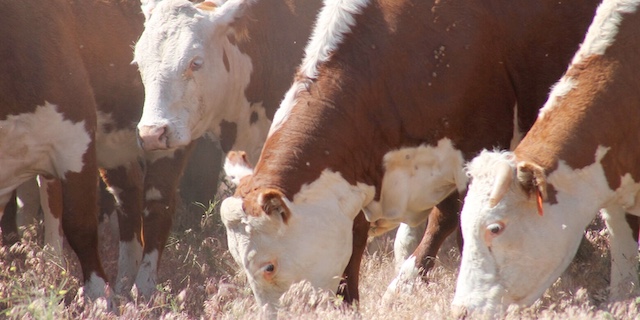Australia relaxes restrictions on beef processed in U.S.
Published 3:41 pm Friday, July 25, 2025
The Australian government loosened import restrictions on beef processed in the U.S. after a five-year study on how the USDA inspects the health of cattle raised in Mexico and Canada and slaughtered in the U.S.
The study, finalized this month, concluded the USDA’s border inspections met Australian biosecurity standards. The finding will allow U.S. meat packers to export beef derived from Canadian and Mexican cattle, removing a trade obstacle that had caught the attention of President Trump.
“Now, we are going to sell so much (beef) to Australia because this is undeniable and irrefutable proof that U.S. beef is the safest and best in the entire world,” he said on a social media post July 24.
“All of our nation’s ranchers, who are some of the hardest working and most wonderful people, are smiling today, which means I am smiling too,” he said.
Australia ranked second in the world in beef exports in 2025, behind only Brazil. Exports to the U.S. accounted for nearly 30% of Australia’s global exports, according to the USDA Foreign Agricultural Service. The USDA expects Australian beef exports to the U.S. to set a record this year.
In contrast, the U.S. exports little beef to Australia. U.S. beef is not banned from Australia, but the beef has had to come from cows raised as well as slaughtered in the U.S.
Mexico and Canada import about 2 million head of live cattle into the U.S. annually. The USDA has taken steps to tighten biosecurity measures, according to Australia’s Department of Agriculture, Fisheries and Forestry.
The National Cattlemen’s Beef Association had previously called Australia’s restriction on U.S. beef a slap in the face.
“The lack of two-way, science-based trade has been a sticking point for many years, and we are pleased that President Trump has successfully opened the Australian market to American beef,” NCBA President Buck Wehrbein said in a statement.
Trump referred to Australia’s restriction on U.S. beef exports in his April 2 Liberation Day remarks. Australian Agriculture Minister Julie Collins told reporters that Trump’s criticism wasn’t a factor in relaxing the restriction.
“The decision has been based purely on science and a rigorous assessment by my department,” she said.
Cattle Australia, a trade association representing Aussie ranchers, called for an independent scientific review of the decision to relax the restriction.
R-CALF CEO Bill Bullard said increasing exports helps U.S. ranchers, but noted that Australia is already “awash in beef.”
“There may be some minor benefits to having increased access to the Australian market, but the benefits will largely flow to meat packers,” he said. “I don’t see (Australia) purchasing a significant amount of beef.”
The U.S. doesn’t produce enough beef to meet domestic demand. If U.S. beef exports increase, consumer beef prices may rise, Bullard said.
